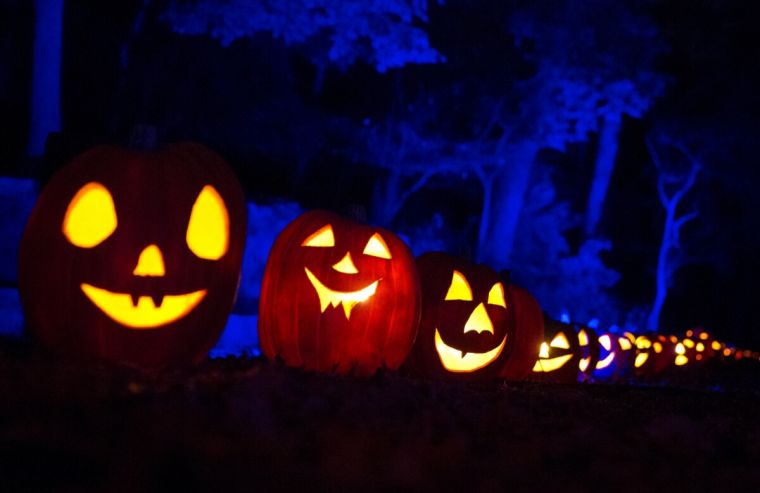Light Parties: Is the church's alternative to Halloween really a good idea?
Local churches are being encouraged to hold 'light parties' this Halloween. The idea is to celebrate 'what's life-giving and positive', instead of what's dark and possibly evil, according the Church of England's promotional material.
It's a recognition, as well, that the night when ghosts appear has been seized by commercial interests. Halloween is worth hundreds of millions to the manufacturers of sweets and costumes in the UK, and billions to their counterparts in the US. Who wouldn't want an alternative?
The annual celebration could also be an opportunity to advertise what goes on in church.

Well, there are sound spiritual reasons to dismiss the church's suggestion, and there is a wisdom in resisting its move to seize All Hallows Eve for evangelistic purposes.
Halloween is, at heart, a night of play. Carved pumpkins, face paint, tricks and treats express an unruly side of life. They acknowledge a set of forces and realities that a this-worldly, hyper-rational age would prefer to disprove and ignore. The festival breaks through the flatland of modern disenchantment and reminds us of what our ancestors knew, the 'more things in heaven and earth' of which Hamlet reminds Horatio.
Play is not a trivial matter, either. It is the core activity for developing the capacities of creativity and imagination that are human birthrights. It's for this reason that the child psychologist, Donald Winnicott, put play at the heart of what he called the 'maturation process'.
Winnicott also stressed that, nowadays, religion in practice tends to thwart this growth. His problem was that Christianity is no longer a place where people experiment with the implicit energies of life. Instead, it's morphed into a set of ethical requirements to do what's good and believe what's right.
It was once a labyrinthine pathway to life in all its fulness, facilitated by shadowy mystery plays and risky pilgrimages, symbolic rites and ancient remembrances. It has become a moral education. Discipleship defaults to schemes for injecting uprightness into young hearts and unsure minds.
This is the opposite of play. It 'steals' the chance of true development from the individual, Winnicott said, 'depleting' the soul. It's the ecclesiastical equivalent of forcing schooling into the straitjacket of tests, assessments and examinations.
Rather, adults and children alike must be allowed to make their mistakes, follow their inclinations, step into the night, as well as the day. It's only then that they might learn that 'the devil and all his works' live in them, as well as in the world, and that they can understand life's shadows, contain them and, in a way, befriend them. They might learn what it is not to be afraid.
The spiritual truth of this wider embrace was well captured in The Screwtape Letters, by CS Lewis. As the senior devil remarks: 'We want a whole race perpetually in pursuit of the rainbow's end' because, so focused on the way things should be, they will not notice the complexities of how things are. The devil wants people to be unfamiliar with darkness, or better, to be taught that the darkness is nothing compared to the light, because 'Nothing is very strong.'
These points are worth stressing if you care about wellbeing and spiritual sight. In advocating 'light parties', the church is not only at risk of denying people but of instrumentalizing Christianity in a way that is, in spirit, thoroughly this-worldly and secular. It reveals itself to be less interested in spiritual development than numerical growth, to be not about opening people's eyes to spiritual reality but manufacturing a sanitized, sparkling version of it.
There's wisdom in the traditions of Halloween. Its darkness, mirroring the fading of the autumnal light, is a chance to sense the Paschal mystery. That's much better than simply being taught it. The light of All Saints Day on November 1, and the depths of All Souls Day on November 2, will be experienced all the more richly.
So if 'light parties' feel contrived and possibly shallow, that's a feeling worth taking note of. They might hollow out, not flesh out, divine life, and people will sense it.
Mark Vernon's new book, 'A Secret History of Christianity: Jesus, the Last Inkling, and the Evolution of Consciousness', will be published next year. For more, see www.markvernon.com











